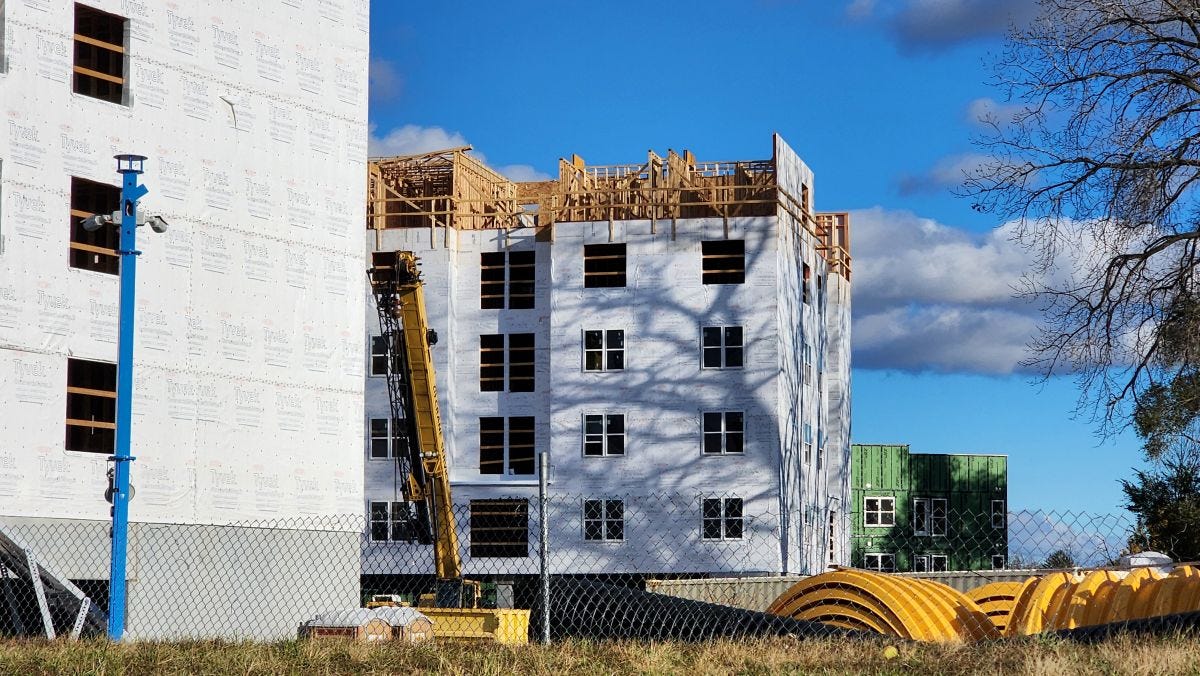Shelter on fire
On the Great Chicago fire, exploding propane tanks, and why public health depends on the market building plenty of safe and dignified housing
A fire in Minneapolis started in a lot that was vacant of any permanent structures, but apparently crowded with tents and other temporary shelters. By the time it was extinguished, the fire had consumed the encampment and spread to a neighboring house -- one which had evidently been maintained with care. A second house nearby was also damaged. A similar event happened in the same neighborhood about two weeks ago.
■ Urban fires used to be grave and frequent threats in America. The Great Fires in Chicago (1871) and San Francisco (1906) are well-remembered, but lots of other American cities had huge and devastating fires, too, including Pittsburgh in 1845 and Atlanta in 1917.
■ Building codes have made a huge difference, as have professional firefighting crews. A huge difference is made by automatic fire sprinkler systems, which like modern fire departments, depend upon the public water systems that supply water faster than any tanker truck could deliver it.
■ But if people are living in informal or makeshift arrangements (like a tent encampment), then many of the protective advancements of modern living are lost. It's one of the reasons why people shouldn't have a knee-jerk response when asked to reconsider using the word "homeless". In a very real sense, the people in the Minneapolis encampment probably considered their tents "home", so they weren't really homeless -- but they were literally "unhoused".
■ The condition of going unhoused may have been voluntary or involuntary. There are plenty of social, economic, and health factors involved. But the consequences of living in conditions of heightened danger -- like using propane tanks to fuel their heat sources, which are at high risk of exploding in a fire, as happened in Minneapolis -- ended up harming people both inside and outside the encampment.
■ Nothing resolves these problems better than housing supply. A generous supply of housing that is safe and dignified is, in a very real sense, a matter of public safety, even if that isn't always obvious. Reasonable minds can differ on how to achieve that supply, but no one who wants to secure the benefits of modern safety practices should ignore the most important upstream factor.
■ Markets are very good at filling voids, even for goods like low-cost housing, but they often run into opposition from people who use zoning ordinances and other tools of political pressure to try to stifle that supply. The fires in Minneapolis show how the consequences can turn out to be dangerous for everyone.



